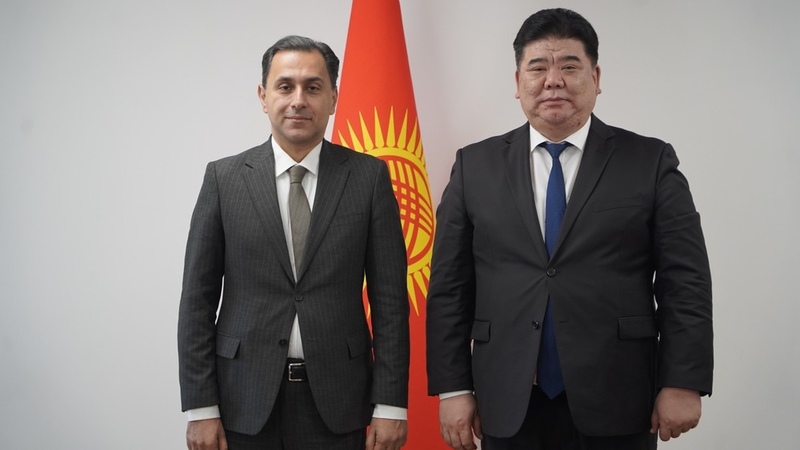
By Val. Obienyem What do I compare him with as a teacher of teachers? Who else has the longest history of teaching seminarians, among others, through unique pedagogic skills? Which teacher can I remember whose humour is so infectious that others pale into insignificance? Who else am I talking about other than Mr. Domnic Igbemma, our famed Latin teacher who hailed from Achalla? As I think of Igwemma, I always remember my first encounter with Latin in 1983.
I recall how Monsignor Jeremiah Ikegbusi entered our class and gazed at us with a conscious grandeur that left our imagination free to contemplate what Latin would look like. To make matters clear, he wrote on the notice board: “Latina Lingua” (Latin Language). Thus, our journey into Latin began with awe.

I was just 11 years old at that time and was relieved when Fr Ikegbusi told us that we were still young and that languages are easier to understand at younger ages. At Akpu, we passed through Fr Ikegbusi, Fr Anthony Ejeziem (then a seminarian). We called him “Ntaachi.
” I do not remember how we came about that name. Later, at Isuaniocha, I once entered his room and saw a big book on his table titled “Cosmic Consciousness.”He laughed heartily when I asked him to lend it to me for reading.
At Isuaniocha, Mr Igwemma took over. At the lower level, it was more about Latin grammar, while at the higher level with Igbemma, it was more about literature. The logic was simple: having been grounded in grammar, we now applied it towards understanding written texts, novels, and prose in Latin.
Thus, the major text with Igbemma was “Bello Gallico” (“The Gallic War”), Julius Caesar’s account of his campaigns in Gaul. With Igbemma, one never slept in Latin classes, however dry the subject appeared to be. He had a unique manner of keeping everybody alert, such that whenever he failed to attend class, it was regarded as a major loss.
It was not beyond him to introduce a class, read a few lines of the day’s text, and spend the rest of the time telling us about himself. He was so pleased with himself that he surrounded his persona with tales difficult to believe, which we cherished for their incredibility and, at times, verbosity. Shall we sample some of these? Igbemma brooked no equality, especially when dealing with unequals.
If we provoked him in class, he would tell us he would call Albert (referring to Archbishop Albert Obiefuna). The way he mentioned Albert conveyed that he was just his contemporary and classmate. Notably, he would bypass the rector, almost always sending the message that reporting us to, or even contacting, the rector was beneath him.
Was he right? Those Rectors were probably his students when they were seminarians, for Igwemma also taught Latin for many years at All Hallows Seminary. I remember one fateful day he came late to class. Instead of apologising, he explained to us – so we could appreciate how famous he was – that a reckless policeman delayed their vehicle.
He said he could not have spoken to such a junior officer and assured us that, having copied the man’s service number, the officer would be expelled from the force within a week. As incredible as his tales were, he once told us how he attended a conference in a foreign country (I can’t remember which) where the organisers did not understand English. What did he and his entourage do? Vintage Igbemma: “At first, I spoke to them in English; none of them understood.
I spoke to them in French; it was the same. I spoke to them in Latin; still no response. I finally spoke to them in Espaniola, and one of them managed to respond.
” Just imagine the cheers from the class. At this point, his face brightened with the assurance of a person who understood his position in this world. This could explain why he once told us that letters written by the Pope to the diocese were interpreted by him to avoid misinterpretation by half-baked Latin experts – referring to priests.
I vividly remember one class when Igwemma was with us, and the rector, Monsignor Anamaze, flagged him to the door while lectures were ongoing. While he was in a tête-à-tête with the rector, students began chuckling. When Igbemma returned, he smiled complacently and said, “When two big men are talking, you do not talk.
” The greatest rebuke from him when someone made noise in class was: “Shut up! Nna gi ama Latin?” (“Does your father know Latin?”) One day, he came to class looking pale and forlorn. Students knew he was probably nurturing tales threatening to suffocate him. As expected, once the class began, he told us how armed robbers had visited his street and robbed most of his neighbours.
He stood on his balcony, watching them and calculating how to react. What saved the armed robbers that day was that they recognised him and hailed him, reminding him that they were not there for him. He loved telling us classical stories.
In love with Julius Caesar, he often recalled how powerful Caesar was, how even those about to die saluted him, and how King Henry IV was deceived by what he called the “Caterpillars of the Commonwealth.” I loved such classic tales so much that when he wrote a book titled”Manual of Ethics for Nigerian Students” I bought it and read it voraciously. It was there I read about Jeremy Bentham for the first time and his “hedonistic calculus.
” An alumnus of the Catholic University of Louvain, Belgium, Igbemma believed that only academics worthy of recognition were those who attended that university. The last two times I met him one-on-one was at Christ the King College, Onitsha and at St. Patrick’s Cathedral, Awka.
I was so excited, and the exchange went this way at CKC: Val: Salve, magister (Hello, Teacher) Igbemma: Quis es tu? (Who are you?) Val: Discipulus tuus Latinus eram. (I was your Latin student.) Igbemma: Salve, discipule! (Hello, student!) Igbemma: Quo modo? Quid hic agis? (How are you? What are you doing here?) I collected his number and kept in touch.
Igbemma was a teacher beloved by all who passed through him. You can imagine the depth of grief among his many students at the news of his death today. If I were to guess, he was not less than 90 years old.
Thus, one could say he died like a mild, ripened pawpaw falling from the tree of life. As Bishop Ezeokafor, probably one of his students, often reminded us: it is better to support a person to live a dignified life than to give them a befitting burial. I am happy I was among the old boys’ entourage that visited him about three years ago.
We had a hearty time with him and gave him what we could. At that time, his wife pointed to so many Latin scripts lying in his house, for Igbemma was the embodiment of Latin diplomat examination of different institution affiliated to Urban University, Rome. He set exam questions, sent them to Rome for approval, marked them, and completed all related processes.
Now that he is gone, I think it is appropriately the end of an era. However, posterity will remember him as a man who did what he was destined to do with excellence. We shall miss him a great deal.
May his soul rest in peace..















